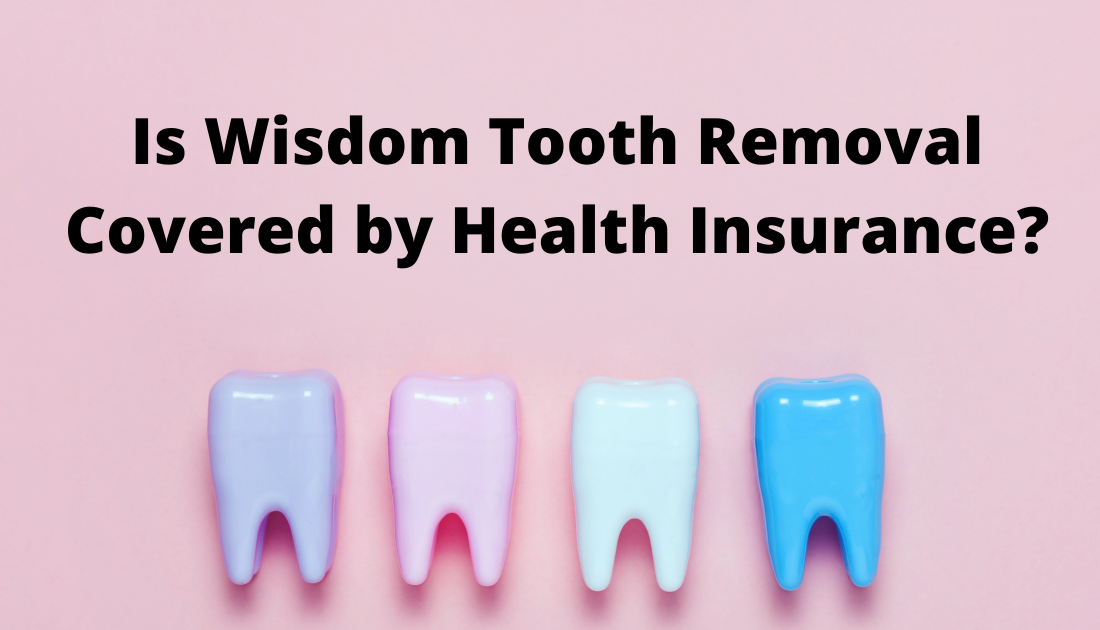Is Wisdom Tooth Removal Covered by Health Insurance?

Just the Essentials…
- Wisdom tooth removal is only covered by health insurance if it is deemed medically necessary, meaning it is likely already causing health problems.
- Dental insurance for adults is not currently an essential benefit under the Affordable Care Act (ACA), but many providers still offer it. However, you can only receive so much dental coverage in a year.
- Regular dental care is a critical part of a healthy lifestyle. You should always be sure you are taking proper care of your teeth, mouth, and gums.
Dentistry and Medicine
Dentistry has long been considered distinct from medicine, dating back to the days of barber surgeons. You could get your teeth extracted and a haircut at the same appointment in the Middle Ages. For centuries, we treated our teeth much like our hair and nails: a largely cosmetic part of our bodies whose treatment was purely mechanical. If a tooth had a problem, you pulled it out. Not enough teeth left? Make dentures instead!
When the first dental college was founded in Baltimore in 1840, its founders aimed to transform dentistry into a medical profession, providing oversight over the city’s many dentists. Yet, when they approached the local medical school to establish a dentistry program, the faculty soundly rejected them. Thus, symbolically, began the great divide between the two professions. Henceforth, physicians and dentists would attend different schools, have different titles, and most importantly, accept different insurance.
Of course, we know today that oral health is a part of overall health: the mouth is an early indicator of many illnesses, and tooth problems left unchecked can lead to severe complications and even death, yet traditional health insurance won’t usually cover dental work unless in medically necessary cases. In many situations, this issue also extends to one of the most common forms of dental surgery: wisdom tooth removal.
Wisdom teeth are the appendix of the mouth: you only ever notice them when they start causing problems. An impacted wisdom tooth can lead to intense pain, bone loss, and serious complications. So why is it that, in most cases, your health insurance won’t cover wisdom tooth removal?
What dental care is considered a medical necessity?
A medical service is deemed medically necessary when it is meant to treat a condition, injury, or illness. For instance, a cast for a broken limb is medically necessary, as the limb won’t heal properly without it.
Medically necessary services also exist in dental care. For example, if an impacted wisdom tooth is causing medical problems, your insurance will cover oral surgery to extract it. A dentist won’t typically do this, however: instead, a maxillofacial surgeon who specializes in the treatment of the mouth, teeth, face, head, and neck will remove it under full anesthetic, likely in a hospital setting.
This might seem like overkill to remove a tooth, but that’s because these medically necessary cases are among the most intense dental care services. Problems have likely begun to occur, or a dental hygienist has identified potential problems during a routine examination. However, there are other forms of wisdom tooth removal. In some cases, all it takes is local anesthesia and traditional tooth extraction, which can be done as an outpatient procedure at any dental office. Despite being much less expensive, these extractions are not typically covered by insurance.

How does the social stigma of dental care factor in?
Unfortunately, dental care for adults is not currently considered an essential benefit under the Affordable Care Act (ACA). In pop culture and the media, the prevailing assumption is that poor oral health is a moral failing rather than the an effect of disease. We’re conditioned to view teeth as a cosmetic part of our bodies: bad teeth are associated with bad, or at least undesirable people, even though similar health issues aren’t viewed in nearly the same way.
This can often be an issue for those with impacted wisdom teeth requiring removal, as often this issue doesn’t begin to emerge until your late teens, at which point you’re only covered for a limited time. Even though preventive care is covered under the ACA, millions of people go without preventive dental care each year because of this long-standing stigma.
Getting Dental Coverage for Wisdom Teeth Removal
Some plans on the Marketplace offer adult dental coverage as a benefit, particularly family plans that are also required to offer dental benefits for children. You may also be eligible for dental coverage through your employer. However, as plans are not legally required to include dental coverage to adults, you may have to seek out a standalone plan.
Dental plans are available through the Healthcare.gov Marketplace or your state’s insurance exchange. These plans are often much less expensive than health insurance, with premiums of under $50 a month. Preventive care, like teeth cleanings and x-rays, is often covered at no cost to you, with more extensive care, including wisdom teeth removal and orthodontia, available after a small deductible.
However, while these plans are offered through the Marketplace, they’re not necessarily subject to the rules set by the ACA. This means that they have an annual maximum: the maximum amount of money that an insurer will pay out in a given year. Once this annual maximum is met, most health insurance plans will offer no more coverage that year. You might also need to wait several months to a year before you are eligible for specific treatments, like root canals or wisdom tooth extraction, so signing up before you have a problem is typically best practice.
This may sound like a toothache waiting to happen, but things are changing. Oral health is now widely recognized as an important part of overall health, and dentistry has been elevated to a proper medical discipline. Perhaps, in time, preventive dental care will finally become an essential benefit for adults. Until then, choosing the right plan for your dental needs is critical.
Our licensed, friendly agents can help you find a dental plan that meets your needs. Call us at (800) 318-9984, or enter your zip code to start comparing plans today!
Key Resources:
Dental and Oral Health: How long until a tooth infection kills you?
